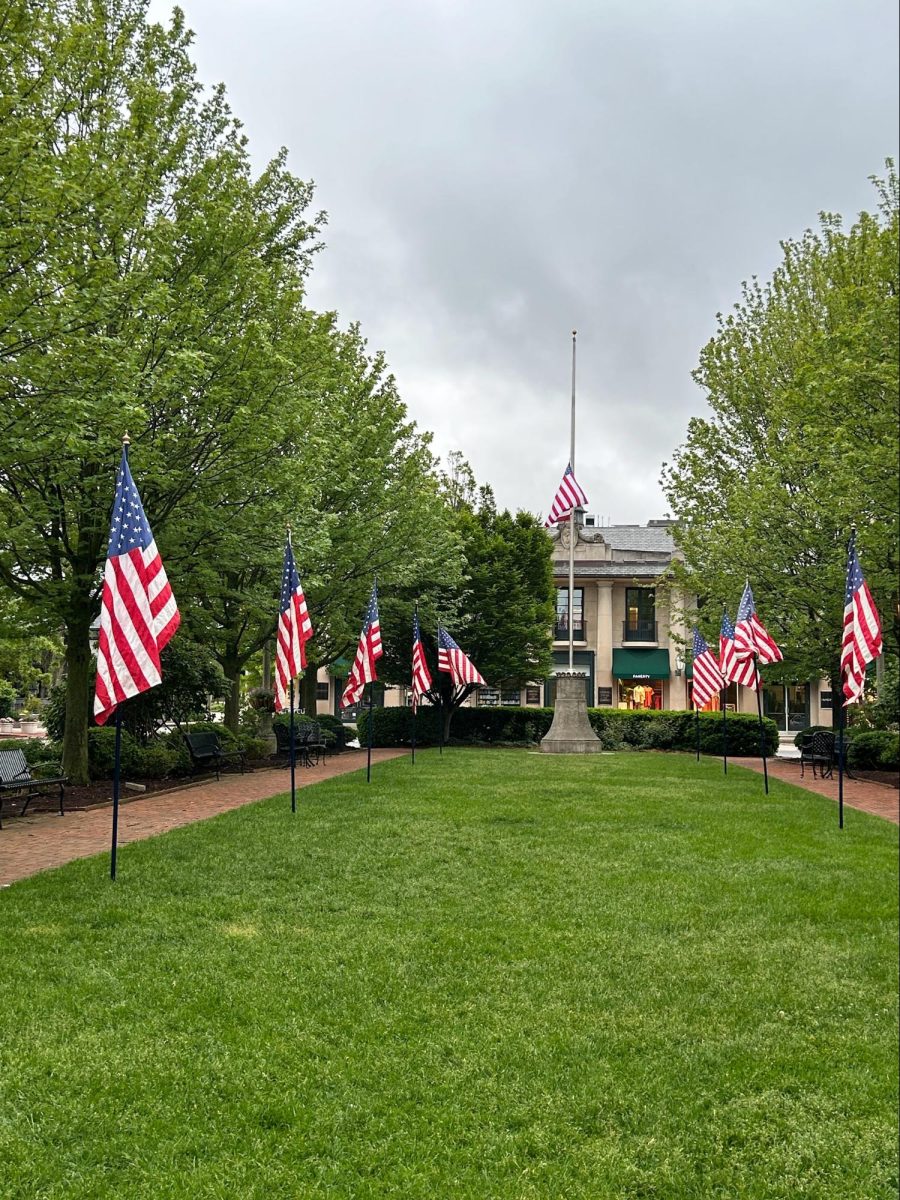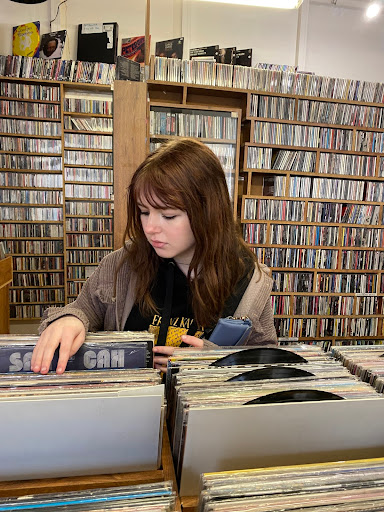Nadia Breedt is a senior at LFHS. She recently moved to Lake Forest last year from South Africa. She is involved in cross country, softball, human rights club, women’s club, and NHS. Here are some interesting facts about her home country.
What languages are commonly spoken in South Africa?
“South Africa has 11 official languages, so there’s quite a lot. Most common I believe is Afrikaans, English, Zulu, and Xhosa (pronounced with a click). Most high schools in South Africa make English and Afrikaans compulsory classes for all five years. I also studied Northern Sotho for four years in primary school (grade 4-7) but I only remember how to sing a nursery song and count to five.”
Can you share some traditional South African dishes that are popular in your region?
“Most common food in South Africa is Boerewors. It’s a type of sausage that we’ll make at our version of a barbeque called a ‘braai’ (pronounced bu-’rrrr’-eye). We often also serve it with ‘Braai Broodjies’ (translates to small barbecue sandwiches) that contain mayo, cheese, onions and chutney sauce, roasted over the fire. A common dish you’ll find in most South African families, including some tribes, is ‘PaP.’ This is a porridge or polenta kind of maize, that we’ll often serve with a tomato sauce or butter and sugar. For desserts, it’s pretty popular in Afrikaans culture to make ‘Mell Kos’ (translates to milk food), a sweet cinnamon dairy sort of ‘dessert soup.’ I’m also personally a big fan of Malva Pudding, a toffee kind of cake, similar to the English sticky toffee.”

How would you describe the cultural diversity in South Africa?
“There is definitely a large cultural diversity in South Africa, and that has to do with the large amount of colonization and immigration that occurred in South Africa. There is a big divide between tribal cultures that existed before the Dutch and the British colonized South Africa in the early 1600 to 1800s, so today you will see a big difference in the culture between tribes like Zulu, Xosa, and Sepedi, as well as Afrikaans (previously dutch) culture and English culture. English speakers that descend from Britain are often referred to by the slang word ‘Souties’ (translated to Salties). There was also some French immigration, hence the booming wine industry, but little of the European culture remains today. A lot of it has changed into their own cultures.”
What are some must-visit places or landmarks in your hometown or region?
“Personally for me, there’s a small, locally run game reserve called Madikwe Game Reserve, which I would highly recommend. Obviously, the big pull of game reserves and national parks are the safaris and yes, they are just like what you see on TV. It truly is a once in a lifetime experience. Another big landmark in South Africa is Cape Town, a city on the more western southern part of South Africa at the coast. Cape Town most popularly offers views of Table Mountain, a large, flat, but cold mountain in the middle of the city. Cape Town is also known for its beautiful beaches, the great white sharks, rigorous mountain biking, scenic drives, booming art exhibits, and the clubbing and partying culture on Long St. I stayed in Hout Bay Cape Town for a year and it’s what I miss most about South Africa.”

Are there any unique customs or traditions that are specific to your community or ethnicity?
“Something unique that South Africa offers that I haven’t seen in the states is the celebration of heritage day. The large cultural diversity that we have in South Africa has caused distress in the past, but has now led us to embrace the diversity and differences that we have among South Africans. On heritage day, we’d celebrate at school where people would come in any sort of traditional wear, or bring traditional food, and we would celebrate each other’s cultures. Whether it is a tradition celebrated at homes, or something that’s been passed down generationally, it was a really beautiful tradition that I miss.”
What is the education system like in South Africa?
“South Africa has a very different approach to education than America. In South Africa we have primary school that ranges from grade 1 to grade 7 and high school that ranges from grade 8 to 12. During grade 8 and 9, high school students will take all of the subjects that the school offers. Starting 10th grade students get to choose three subjects that they would like to continue with for the rest of high school and are obligated to take English, Afrikaans, a math level of their choosing, and a PE class. There are very limited universities in South Africa so people often just apply to them all. The applications only include your grade 11 grades and later on your grade 12 grades are submitted for additional scholarships or dorm options.”
What are some of the major differences you noticed when you first moved to America?
“Americans tend to be more upfront in conversations, and often feel as if they are entitled to have their questions answered — whether that’s personal or general information. They also feel inclined to share their opinion, even if you did not ask for it, which I love. I also saw that the portions of food and meals are a lot larger here and I often struggle to finish them. There was a shocking amount of misleading advertisements and hidden fees whenever it came to purchasing anything. Lastly, I noticed that goods here are a lot cheaper but services are a lot more expensive. In South Africa, it is the opposite.”
How would someone living in South Africa spend their free time?
“This obviously is different depending on where you stayed in South Africa. My hometown was a gated community, so there was very little to do that was interesting. Often we’d hang around in parks or at people’s houses, every now and then we might go out to a restaurant, the movies, or arcade. The cities are very dangerous so we rarely could travel far out. In Cape Town, the culture was much different. We’d often go to the beach, scuba diving, thrift shopping, hikes, art stores, have picnics, listen to live music, and explore downtown. Much of South Africa consists of small rural towns, so people would go to coffee shops, horseback riding, hunting, and farming.”
What are the most popular sports in South Africa?
“South Africa is huge on rugby. I think it’s the one sport that everyone loves. After segregation (Apartheid) ended, we were finally able to compete in the World Cup and have been on a two cup streak the past two tournaments. Other popular sports include cricket, netball, field hockey, and sometimes soccer. I went to one of the few schools that also offered softball.”
What is your favorite song written by a South-African singer?
“I personally hate South African music. It sounds like bad club music or cringey love songs, but if I had to choose one it would be ‘Baby Tjoklits’ by Gerhard Steyn, as my mom used to play it a lot as a kid for me, so it’s nostalgic.”













